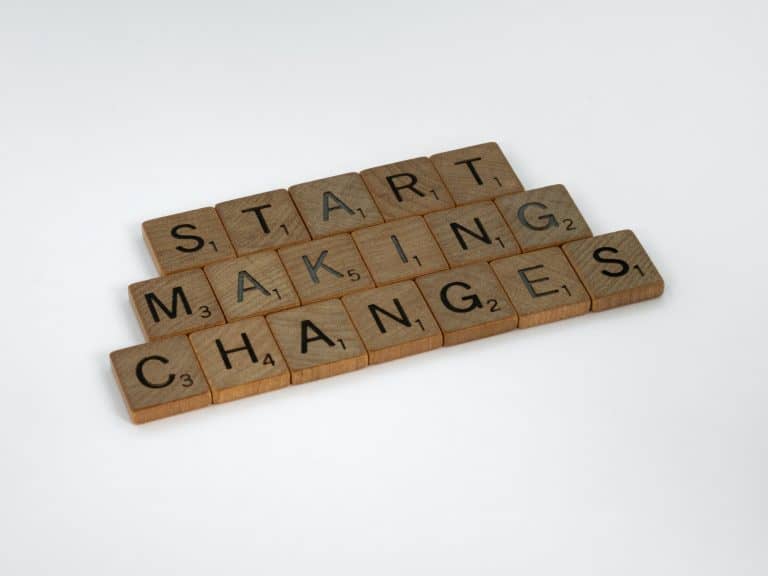How much savings should I have at 35 UK? How much is enough at 35
Not knowing how much you should be saving can be a constant stress.
If we don’t save enough, we might be looking at a tough later life or not handle any changes in our current life.
Being able to afford a comfortable and dignified life now and later is one of our ongoing life challenges.
Are you saving enough, or would you believe it too much!
Are you saving in the right places for short and long-term needs?
How much savings should I have at 35 UK? Or, for that matter, at any age?
The answer to that question depends on what you want good to look like and when you want it.
Even if you know what good looks like, you are bound to encounter roadblocks stopping or derailing your progress – figuring out how you can overcome these and save money might make all the difference in a life well lived?
Many of these questions can be answered with a good GAME Plan in place.
A plan that details what you want and a step-by-step process to get there.
Read on to hear how you can get your GAME plan in place and figure out how much savings you should have by 35?

A 35-year-old should have this amount of money saved
I know you just want the number to see if you are more or less ok and can then decide if it’s good or bad news for you.
Here are 3 ways you could figure out if you have enough saved.
1 year’s salary
Fidelity did a study, and they suggested that a 35-year-old “should” have double their annual salary in savings.
So, if you earn £30k a year, you should have £60k in savings at 35.
How does that sound?
For some, it will be fine; for others will be a shock.
How could a normal person with all the challenges of work, life, families etc., seriously save £60K?
In the below sections, we cover how you might be able to do this but possibly, more importantly, why this might not be a relevant multiple for you.
The 4% rule
Another option to calculate how much savings you should have at 35 is the 4% rule of thumb.
4% represents the safe withdrawal rate you can use from your savings and investments for early or conventional retirement ages.
Just withdrawing 4% each year could, in theory, would be small enough for you to be able to live off it forever (ish).
Let’s say you spend £$€30k a year. If you had 25 X £30k, you would have a fund of £750,000.
4% of £750,000 = £30k.
If your £750,000 was invested in a low cost globally diversified index fund and could return 4% a year net of inflation (a reasonably modest return but not guaranteed). Then by withdrawing only 4% a year, it would, in theory, run and run forever (although in the case of forever, a lot could happen in that time)
How close are you to having 25 x your yearly spending?
This will indicate how close you are or how much more you might need to save to become financially independent.
The Millionaire Next Door net worth calculation
The book by Thomas J Stanley, The Millionaire Next Door detailing how ordinary Americans have reached Millionaire by careful money management and simple investing.
The formula used to calculate if you’re a prodigious accumulator of wealth or an Under accumulator of wealth.
Your age X your household income (minus any inheritances) / 10 = your “expected” net worth
So, let’s say you earn £30k a year.
35 years X £30k / 10 = £105,000 is your expected net worth.
If you have this or more minus inheritances, you’re a prodigious accumulator of wealth.
If not, you are an Under accumulator of wealth.
As you can see, this number is a lot more than 1 years’ salary – that’s why you would be called a prodigious accumulator of wealth.

Figure out your short-, medium- and long-term goals.
Knowing where you are trying to get to can be surprisingly helpful in trying to get there.
Who would have thought?
The above calculations give you an idea of where you might be trying to get to, but what about goals other than just figures in a bank or investment account?
If you have no goals or at least best guesses, who knows where you will end up.
Having no goals makes it difficult to know if having £0 in your bank account or £100k is better.
I, probably like you, think having £100k is most likely better, but it’s unclear if that is a good amount at 35 or any age if you don’t know what it’s for.
Figuring out goals, wishes, or best guesses around the areas below can help define what amount of money is right for you at 35.
- Career – full time, part-time, seniority, title, flexibility
- Relationships – friends, family, clubs, social events
- Lifestyle – material, houses, holidays, free time, work-life balance, comfort, safety
Once you define these, it will help you understand if having X in your bank account leads you towards that or away.

Figure out your baseline
How much money do you have right now?
Where is it coming from, and where is it going to?
Understanding your cash flow will help you spot the leaks and opportunities to keep more of YOUR money.
If you’re burning through all your money every month, then this clearly isn’t going to work in the long term. The reason is that you are just one step or one month away from a financial crisis.
Building the gap between income and expenditure is the cornerstone of sound financial planning and the starting point of financial stability and later financial freedom.

Put an emergency fund in place asap
At 35 and any age, you need to have an emergency fund in place.
3-6 months or more of your expenses saved in an easy-access account. Depending on your circumstances, you might want more – whatever helps you sleep at night.
This isn’t money that is expecting to earn amazing interest – it’s money that prevents a tricky situation from turning into a crisis and then a disaster.
- Emergency car or house repairs
- Emergency travel
- A sudden loss of income
At 35, you definitely need an emergency fund as maybe not today, maybe not tomorrow, but soon an emergency will come.

Automate your money
Automating your savings is a surefire way to make them grow.
Automating takes all decision-making out of the process.
You set it up once, and off it goes saving every month for you.
Then a few times a year, see if you can nudge it up more and more.
Start building the moment of your savings.
Removing you out of most of the work will work wonders as you are likely your weakest link.
You will delay, procrastinate, and find some other story not to do it every month.
If you work at a company, they will likely have a workplace pension. Make sure you join it and get the FREE money that’s on offer.
Workplace pensions are again automated savings done for you – with FREE money.

Increase your safety net
Here’s an idea – how about you had enough savings to take a year off work?
Does that sound like it might be a good idea or a worthwhile pursuit?
1 year without work to travel (global pandemic permitting), retrain, learn a new skill, care for someone, start a side hustle.
This is why you are saving – to have options now and later.
Whether it’s one, two or more years’ worth of salary saved, the more you have, the more options you have.
You can either decrease your expenses and or increase your income.
Decreasing your expenses probably has a limit to it – i.e., you can cut so far until life becomes miserable.
Whereas there is potentially no limit to what you can earn.
If you are in a salaried position, maybe there are some limits, i.e. the CEO is likely on the highest salary available.
But if you started your own side hustle, then it’s up to you what you earn.
It’s not that it will be easier, but the possibility of growing your income through a business might be clearer.
Having more than one source of income is also a method to increase your safety net – if one drops off, you have the other to cope with the shock.
A bigger safety net means more options for you and your family, whether that’s in the size of your savings, the amount of income, or your income sources’ diversity.

Measure success your way.
Whether you have 2 x your annual salary in savings or not at 35 might be good or not so good depending on your criteria for success.
You might want to have enough savings to
- Take a year out
- Change career
- Complete a course
- Make work optional one day
Some of these might require more or less than 2 X’s your salary.
The critical part is to figure out what good looks like and what not-so-good looks like.
Then take action.
What got you into your current situation might not be the answer to improving it if you need to.
FAQ: How much savings should I have at 35 UK?
How much savings should I have by 30 UK?
According to Fidelity, you should have 1 years’ salary in invested assets.
Enough to fill an emergency fund
Enough to give you the type of options you want now and later in life.
How much savings should you have at 40 UK?
Fidelity recommends 3 x your salary at 40.
This may sound like a lot but it includes all your savings and investments including your pension which your employer should have been contributing to over the years.
Enough so that you can easily sleep at night and know you are on your way to making work optional.
Read more here
Where should I be financially at 40?
How much savings should I have at 50 UK?
6x your salary is the suggested Fidelity amount. But you need to make sure this is the right figure for you in your circumstances and not just aim for an average.
Enough so that work becoming optional is coming into view.
Read more here: Is it worth starting a pension at 50?

Summary: How much savings should I have at 35 UK?
A 35-year-old should have this amount of money saved
Figure out your short-, medium- and long-term goals.
Figure out your baseline
Put an emergency fund in place asap
Automate your money
Increase your safety net
Measure success your way.
Life and Financial Planning
Get ahead in money and life
Life not going quite as you expected?
Would having a Life and financial plan in place help bring clarity on what’s most important to you and how to achieve it?
- Life, job and finances not heading in the direction you hoped?
- One or two months away from a financial disaster?
- Not enough time or money to achieve what’s most important to you?
- No idea how to plan, save and invest to lead a great life?
What’s likely to be the outcome if you don’t make some serious plans asap?
More of the same?
Without making some clear plans you are at real risk of repeating what has gone before and or falling into someone else’s plan.
And guess what they have planned for you?
Not much!
Life and financial planning will give you the support, guidance, and accountability you need to succeed with money and life, building wealth in every area of your life.
- Get your life and money organised
- Build your savings cushion to create more life options.
- Help you figure out what’s most important to you and how much money is enough.
- Help you understand and build wealth so you don’t have to worry about money anymore.
Start building your life and money confidence now because waiting will only make it more expensive and painful to achieve later.
Plan, build and enjoy your life and money.
Taking you from life and financial crisis to happiness.
Contact us here for a chat about building your life and money confidence.







